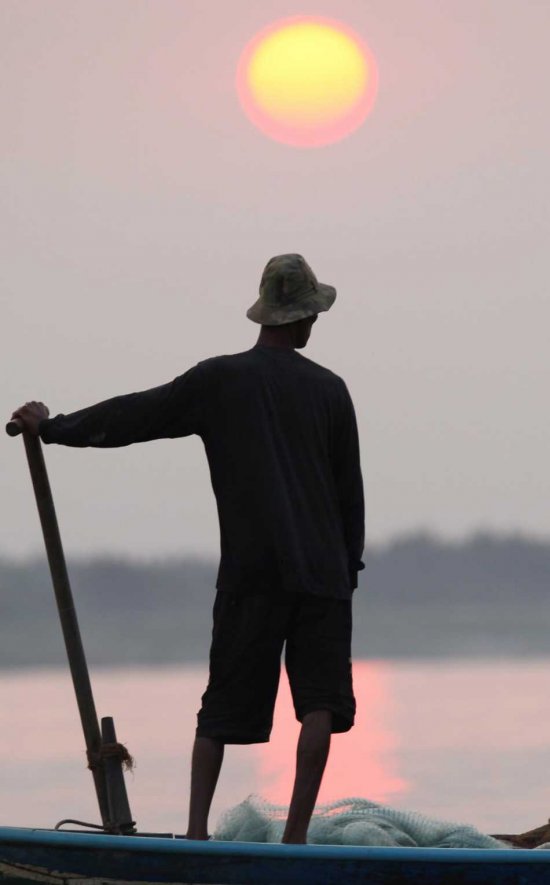
I just read a couple of shocking reports that were featured in both the Premium Times and the Phnom Penh Post about a Cambodian newspaper reporter who after covering a story on illegal fishing was killed by fishermen outside his home in the Peam Chhkork commune, in the central province of Kampong Chhnang.
According to the Phnom Penh Post:
The reporter “Suon Chan, 44, a reporter for Meakea Kampuchea (Cambodia’s Way) newspaper, was confronted by a group of 10 fishermen as he was leaving his house in Cholkiri district’s Peam Chhkork commune and was beaten unconscious by four of them; he died after being sent for medical treatment.”
Cambodian District police officer Tith Reth told the Post:
“He had stones thrown at him, and was beaten with the base of a bamboo stalk by a group of people while he was walking alone out of his house in order to buy cigarettes from a shop in the village. He was hit and seriously injured on his head and neck, and lost consciousness at the scene.”
The Peam Chhkork Commune police chief Duong Vuthy told the Post that:
He suspected that Chan’s killing was motivated by his past reporting on illegal fishing, which had resulted in police crackdowns.
“So far, we do not know the exact reason for this journalist’s assassination, but according to our preliminary investigation, it is related to the rancour between the victim and the group of suspects, because he used his influence as a journalist in reporting and writing about the suspects’ illegal fishing activities in the commune.”

A Cambodian fisherman stands on his boat at the Mekong river in Phnom Penh, Cambodia, 17 March 2010, in this picture made available 22 March 2010. World Water Day on 22 March 2010 focuses on the needs of the 900 million people who don’t have access to safe water. The International Federation of Red Cross and Red Crescent Societies says 2.7 billion people, including 980 million children, currently lack access to proper sanitation facilities and 880 million people go without access to a basic water supply. More than half of the population in the Pacific Islands do not have access to safe drinking water and proper sanitation and more than half of the population in South Asia do not have access to proper sanitation. A staggering 50 per cent of all hospital beds in the developing world are occupied by victims of unsafe water and sanitation. EPA/MAK REMISSA.
Source: http://ki-media.blogspot.co.nz/2010/03/world-water-day-in-cambodia.html
Reporters Without Borders (RWB) also covered this story. RWB have reiterated that reporter Suon Chan’s coverage of illegal fishing may have been the reason.
Benjamin Ismaïl, the head of the Reporters Without Borders Asia-Pacific desk urges powers at be to do something about the freedom of information in Cambodia:
“Like the Cambodian Centre for Independent Media (CCIM) and the United Nations, we urge the authorities to shed light on this act of savagery, to not rule a possible link to the victim’s work, and to bring those responsible to justice as soon as possible.”
“If it is confirmed that Suon Chan was killed because of his work as a journalist, this murder would constitute yet another grave violation of freedom of information in Cambodia. A thorough investigation is needed to end the tradition of impunity for those who murder journalists in Cambodia.”
According to RWB, Cambodia is notorious for the impunity enjoyed by those responsible for using violence against journalists and is ranked 143rd out of 179 countries in the 2013 Reporters Without Borders press freedom index. They provided a CCIM list of 12 journalists whose murders in the past 10 years have gone unpunished.
Related articles
!["Big Bird": The orphaned pelican who was filmed from the moment the giant bird took to the air. Source: Grey Stoke Mahale Blog [http://www.nomad-tanzania.com/blogs/greystoke-mahale/flight-of-the-big-bird]](https://greenfishbluefish.wordpress.com/wp-content/uploads/2014/03/img_0030.jpg?w=614&h=819)

